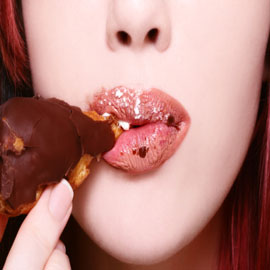Sleep Deprivation May Cause Junk Food Cravings
 Before JSAPA Weight Loss Surgery, did you ever catch yourself reaching for an unhealthy snack when you were overly tired or even just a little groggy? Turns out, your actions may not be entirely your fault as new research suggests that sleep-related hunger and food cravings are fueled by not only your belly but your brain, too.
Before JSAPA Weight Loss Surgery, did you ever catch yourself reaching for an unhealthy snack when you were overly tired or even just a little groggy? Turns out, your actions may not be entirely your fault as new research suggests that sleep-related hunger and food cravings are fueled by not only your belly but your brain, too.
Lack of sleep can sometimes lead to poor food choices which can ultimately contribute to weight gain, but not until recently did researchers realize it’s sleep deprivation that increases activity in the brain that seeks out pleasure—or in this case, junk food. To sweeten this news even further, research also suggests sleepiness may even dampen activity in other regions of the brain that serve as a break on such junk food cravings.
The Research
Though previous research studies have identified a link between sleep deprivation and obesity, it remains unclear how lack of sleep actually affects weight gain and vice versa. Instead of focusing on the cause and effect relationship of sleep and obesity, researchers have now begun exploring how insufficient sleep affects hormones and appetite.
Researchers at Columbia University compared the brain activity in 25 participants following a normal night’s sleep to a night in which they were limited to only four hours of sleep by tracking blood flow in their brains. For each night of sleep, participants were shown images of unhealthy foods mixed between images of healthy foods such as fruits and vegetables.
Researchers found that brain networks associated with craving and reward were more active when the participants were sleep deprived and especially when the participants viewed images of junk foods than when participants had a full night’s sleep. Specifically, when the participants were sleep-deprived, the pleasure seeking parts of their brains were stimulated when they saw foods such as pepperoni pizza, cheeseburgers and cake.
The Takeaway
These results led researchers to suspect that when people are tired or overly sleep-deprived they gravitate to high-calorie junk foods because their bodies and brains are searching for an extra boost of energy so they can make it through the day. Researchers go on to hypothesize that a sleep-deprived brain reacts to food stimuli as though it were also food-deprived.
Though more research is needed to further study the effects of sleep deprivation on hormones and appetite, it’s still a good idea to always get a good night’s sleep. Getting the proper amount of sleep will help keep you energized throughout the day and hopefully more inclined to stay on top of your weight loss efforts.
Here are some tips to ensure a good’s night sleep after bariatric surgery.
- Try to go to bed at the same time every night to establish a regular sleep schedule. Try to stick to this routine even on the weekends.
- Try to wake up at the same time each day. Set an alarm if you have trouble waking up naturally.
- If you do happen to fall behind on sleep, opt for a short daytime nap instead of sleeping in late. Take care when napping if you suffer from insomnia, as napping sometimes can make falling asleep even more difficult.
- If you tend to get drowsy after dinner and it’s not yet time for bed, don’t head to the couch to watch TV. Instead, go for an evening walk to help burn off some extra calories.
Stay on track with weight loss efforts after bariatric surgery and try to get a good night’s sleep every night. Adequate sleep can help you stay energized and may even help curb junk food cravings.
